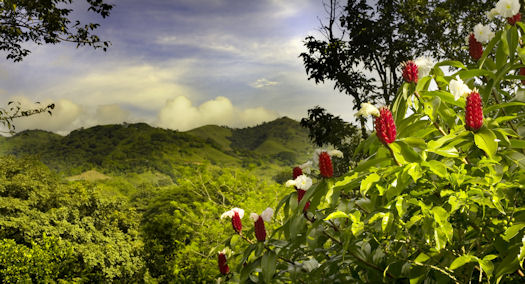By
Tom Kelly
While Europe has always been a popular destination
for U.S. consumers to purchase second homes (were
you part of the group ready to jump on a plane after
reading Under the Tuscan Sun?), the dollar has been
weak against the euro for several years and air
travel tends to be more costly and lengthy to European
destinations.
Couple that with the number of first-generation
Latino residents in the U.S. who  have
a particular interest in staying connected to their
homeland, and you have an entirely new category
of people considering buying a second home in Central
America.
have
a particular interest in staying connected to their
homeland, and you have an entirely new category
of people considering buying a second home in Central
America.
The wildcard in the boomer deck is adventure - it
is part of their hardwiring. Not only is this the
largest, healthiest and wealthiest group ever to
come down the U.S. pipeline, but boomers also seek
the thrill of the exotic and are very willing to
borrow to obtain that experience.
Central
America is an absolute paradox. It may be all that
you imagine, but surprisingly, it is much more than
one could ever embrace. It is more than the long
and winding territory that connects North and South
America.
To
the typical North American, the area conjures up
vivid and varied images. On the geographical side,
a mountainous area with volcanoes, colonial cities,
jungles, and, of course, bananas and coffee.
On
the political front, turmoil, dictatorships and
instability. On the economic front, rich versus
poor, agriculture-based economies, and sweatshops
where United States garments are manufactured and
exported.
It
is a complex and fascinating place, home to 41 million
people with a total gross domestic product of about
$88 billion.
How
do you begin to categorize such a dramatic and extraordinary?
For starters, this region geographically encompasses
seven countries: Belize, Costa Rica, El Salvador,
Guatemala, Honduras, Nicaragua and Panama.

These
countries have many mysterious cities and fascinating
destinations that you could only hope to place them
on the map in your mind. Where, exactly, are those
exotic places on the flight boards at the Miami,
Los Angeles and Houston airports?
Cities
such as Tegucigalpa (Honduras), Liberia (Costa Rica),
Belmopan (Belize) and Colon (Panama) . Once you
learn where to place the countries on a map, then
you'll realize the geographic diversity that these
countries present.
Striking
and picturesque volcanoes line El Salvador, Guatemala,
and Costa Rica. Coastlines range from remarkable
and mountainous
(Costa Rica), to black volcanic (El Salvador and
Guatemala) to low-lying Caribbean. Culturally, Central
America is extremely diverse.

Guatemala
has a strong history of native American Mayan cultures
where much of the population is mixed or mestizo.
Some countries such as Costa Rica have over 90 percent
European ancestry with nearly no mestizo influence.
The
slave migration from Africa to the Americas resulted
in English-speaking areas of African ancestry along
the eastern coasts called garifunas. Panama is a
true melting pot, with Asian, European, and Latin
American cultures meeting at a true crossroads of
the world.
The
economies also differ. Nearly every country has
its own currency (El Salvador and Panama utilize
the dollar) and rely on agricultural exports such
as coffee, bananas and other natural resources.

Others
have heavy manufacturing maquiladora bases (El Salvador
and Honduras) and other countries are discovering
tourism as a major source of income (Panama and
Costa Rica).
Some
countries have a stable middle class (Costa Rica
and Panama) while others have dramatic differences
between rich and poor (nearly every other country
in the region).
Once
you can recognize differences between countries
(if you can tell the difference between each country's
flags, currencies, and can point to the location
on a map, it's a good start!), then you need to
sift through these markets and make a decision.
Where would you buy a second home . . . and why?
*
* *
Tom
Kelly, former real estate editor of The Seattle
Times, is a columnist and talk-show host specializing
in the second-home market. Copies of his latest
books - "Cashing In on a Second Home in Mexico"
and "Cashing In on a Second Home in Central
America," written with Mitch Creekmore, senior
vice president of Houston-based Stewart International,
are available on his website, www.tomkelly.com.